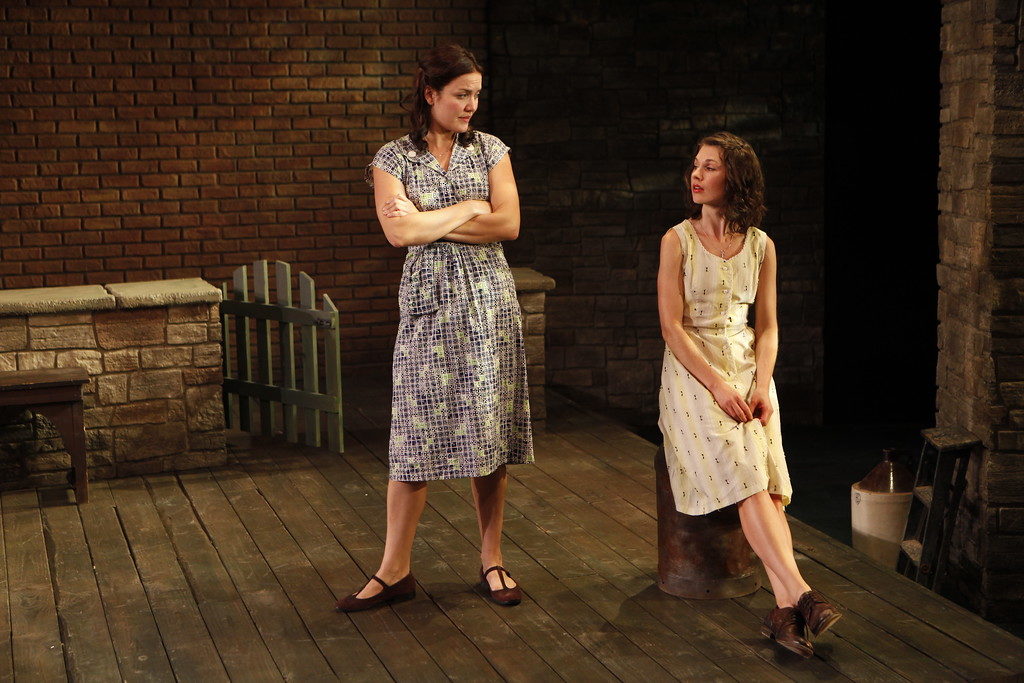How did a century-old play become one of this season’s notable premieres? Thanks to the vintage-play rescuers at New York City’s Mint Theater, The Price of Thomas Scott, written by English playwright Elizabeth Baker in 1913, finally reached U.S. shores more than half a century after the writer’s death (and considerably longer since its debut in England). The production, which ran Jan. 25-March 23, was just the first of the company’s planned Meet Miss Baker series, a two-year commitment to presenting the playwright’s long-neglected.
Mint has long specialized in “lost” plays, with a mission of creating a new life for such works through productions and supplemental programming. That mission sprang, artistic director Jonathan Bank says, from his interest in “old-fashioned, narrative-driven” plays that audiences aren’t already familiar with. He says he wants audiences to “be wondering how the play ends instead of wondering what clever ideas the director might have.” In the company’s early days, he adds, audiences came for the stories, not so much for the chance to see neglected works. But eventually the idea of recovering forgotten plays became interesting to theatregoers as well. This spike in interest inspired Bank to put a particular focus on this recovery mission, changing the theatre’s slogan from “Good Stories Well Told” to “Lost Plays Found Here.”
Since then Mint has made commitments to these under-performed playwrights: Of the 38 playwrights listed in the theatre’s production history (which can be viewed by year or playwright), 12 have had at least 2 plays produced by the theatre. These commitments, however, are not usually premeditated; indeed Bank claims that he randomly stumbles upon the works Mint produces. Certain series, however, have more intentional origins. Such an example is found in Mint’s decade-long Teresa Deevy Project, which has included four productions and two publications of work by the little-known 1930s-era Irish playwright.
“That was a specific instance where I thought, who were the women in Ireland?” says Bank, who looked through the Abbey Theatre’s early production history for an answer. This produced a list of about nine names of women who’d had multiple productions, each of whom Bank then looked up separately. Of the nine, only one name produced any results: Teresa Deevy. Thus was the Teresa Deevy Project born, reintroducing the playwright to the world beginning in 2010. Mint’s championing of Deevy’s work—a near decade-long commitment that is still not complete—has so far included productions of Katie Roche, Wife to James Whelan, and Temporal Powers, as well as an anthology of four short plays under the title The Suitcase Under the Bed. Two collections of her plays have also been published as part of Mint’s Reclaimed series.

Bank came to Elizabeth Baker’s work in a less planned way. He happened to read Chains, her best-known play, about 20 years ago. While he was excited by the piece then, it didn’t prompt him to look further into Baker’s work. It wasn’t until Bank more recently read The Price of Thomas Scott and revisited Chains that he decided that the world needed to see more of her work. Hence the Meet Miss Baker series, Mint’s second planned commitment to a playwright.
Why Baker? Bank says she wrote plays “that feel personal, that feel charged by something.” This is certainly true of Thomas Scott, in which the title character faces a moral conundrum when a business opportunity conflicts with his religious attitudes. As mentioned in Maya Cantu’s dramaturgical note for the production, Baker grew up in a Nonconformist family—a word used to describe non-Anglican Protestants in England—who disapproved of theatre. Baker started to break away from her family’s strict tenets once she began working in London as a typist, a profession she would remain in even after she was a produced playwright.
“I’ve come to feel that she’s apologizing to her family for going into the theatre,” says Bank of the play’s action and ambiguous message, which reflects Baker’s own struggle between her dramatic calling and her religious roots. “I think she doesn’t know what to think. She has feelings, she has thoughts, it’s all a jumble, and there’s the play.”

Another recurring theme in Baker’s work and life intrigued Bank. “The idea of escape is something bubbling up from her unconscious and living in the work,” he says. In Thomas Scott, the lead character’s child Annie hopes to leave her father’s shop to become a Parisian milliner. In real life, Baker escaped England for a year and a half, living in Rarotonga, one of the Cook Islands off the coast of Australia.
Mint produces supplemental programming for its productions through EnrichMint events. These events, which are free and open to the public, provide contextual information about the productions; i.e., another way to expose the public to unknown playwrights such as Baker. Some of the events for Thomas Scott included a talk on Nonconformism in early 20th-century England and an examination of Baker’s life and work.
Reviews of Thomas Scott ranged from mixed to positive, but Mint plans to continue its commitment to Baker with overlapping productions of her plays Partnership and Chains in 2020, multiple readings of her other plays, and a publication of her work as a part of the Reclaimed series.


